- Home
- Madeleine L'engle
Love Letters Page 12
Love Letters Read online
Page 12
“Maybe they won’t.” Charlotte kept on watching the thin, unshapely hand. “Why doesn’t anything happen when you swear?”
“What did you want to have happen?” Charlotte did not answer and Sunset said, “Sometimes it makes me feel better if I yell at God. But not often. Not unless I can really shout.”
“He doesn’t strike you down …” It was barely a question.
“No,” the teacher said sadly. “It doesn’t work that way. Too bad, isn’t it? At least we’d know he was listening. And we do want to be listened to. Far more than we’re willing to listen. See here. I’d rather you didn’t tell the Reverend Mother or any of the sisters, if you don’t mind.”
“All right.”
“Even if I am leaving tomorrow I—I’d just rather you didn’t.”
“All right. But why are you leaving tomorrow?” Charlotte stared into the teacher’s defiant face, suddenly aware of a pain not her own.
“I handed in my resignation half an hour ago,” Sunset answered, “because if I hadn’t I’d have been asked to leave in very short order anyhow. I admire the Reverend Mother and I thought I’d spare her that. When I came here I thought I was a teacher, and I thought perhaps I had a vocation. But it seems that I have no vocation, not as a teacher, not as a Religious. So where does that leave me? I can’t discipline myself, and I certainly can’t discipline you children. As a teacher I am worth exactly nothing to the Reverend Mother. Not one of you pays the slightest attention to anything I say.”
“I pay attention,” Charlotte said politely.
“You’re different.”
“I don’t want to be different!” Charlotte cried furiously, digging her fingers into the ground.
Sunset looked at her sharply. “It was meant to be a compliment. I shouldn’t have been talking to you like this if you weren’t.”
“Sorry.”
“You won’t tell the others about this?”
“Of course not.”
Sunset looked at the child again, then began pulling out the short blades of grass, saying lightly, “Now I’ve told you why I came down to howl, you ought to tell me about you.”
“Ought I?” Charlotte began pulling up grass, too, laying the separate short strands across the sensible toe of her uniform shoe.
“It’s only fair, isn’t it?”
Charlotte had been well taught that fair play is all-important. She felt trapped but she said, obediently, “It was only that Perry Alfreds and I were the only new girls in our dormitory this term and she was my best friend, but none of the other girls in the dorm like me, so she doesn’t any more, either.”
“And that was why you were crying?”
“That. And because I lost the netball game for our form.”
“You lost it singlehanded?”
Charlotte gave a wry grin. “From the way they were yelling at me you’d think so. I’m terrible at sports.”
“Yes. Well. There does seem to be rather an overemphasis on physical prowess. You still like Perry?”
“Yes.”
“Under the circumstances, why?”
“You don’t just turn friends on and off,” Charlotte said with some dignity.
“Even if they do?”
“What they do,” Charlotte said, “has nothing to do with what I do.”
“Then why don’t you get her aside sometime and have a talk with her? Or write her a note? If she’s worth having as a friend she’ll snap out of it.”
Teachers were supposed to know everything, even secular teachers. “Well. Maybe I will.”
“Good girl. You do that. You’d better run along now. It’s almost suppertime and someone will be out looking for you if you don’t get on back to the dorm.”
“Yes,” Charlotte said. “Thank you very much. Are you coming?”
“No. I think I’ll stay and have my howl. You run along.”
“All right.” Charlotte started off, then turned back politely. “I’m sorry you’re going.”
Sunset looked at her, then at the frog pond. “Thank you.”
Charlotte went back to the dormitory, pausing in the lavatory to splash cold water on her flushed face. The others—or at any rate a group of them, including Perry—were sitting in the middle of the dormitory floor, between the long rows of beds, playing jacks, the latest school fad. They had changed to dinner uniforms and were snatching this moment while waiting for the bell. They didn’t look up or speak to her, so she changed quickly, then sat on her bed, rubbing the palm of her hand over the rough grey of the school blanket, watching Perry.
She knew then that she couldn’t speak to Perry. She couldn’t go up to her while the others were around—and the others of course were always around. Solitude was not encouraged. Didn’t Sunset know that? Everything that was wrong was because of the others. When Charlotte and Perry had been moved up a form and put in the big middle-school dormitory Perry was accepted and Charlotte was not, and why? If she wrote Perry, would she find out? Sunset (who after all was a teacher and an adult even if she had no vocation) had told her to write. Charlotte pulled down her pad and a pencil from the shelf over her bed, sat down on the edge of the bed again, and started writing.
“Who are you writing to?” Perry asked suddenly.
“Father.”
“You wrote your father yesterday.”
“I can write him again, can’t I?”
“If you want to. What are you writing him for?”
“Because I want to. He’s my father, isn’t he?”
“I suppose so. I never heard otherwise.”
There was high laughter. One of the other girls said, “Come on, Perry, it’s your turn. Leave baby alone.”
Charlotte watched Perry turn back to the game, bit her lip tightly, and went on writing. The bell for dinner rang and the others rushed off to get into line, not waiting for her. She folded the letter, wrote Perry Alfreds, Private, on it, put in under Perry’s pillow, and ran off to get into place in the dinner line.
As she brushed her teeth in the lavatory that night she felt light and gay. She was happy as she had not been since the day the Reverend Mother had called Perry and Charlotte into her office and told them that their work merited their being moved up a form, although she usually didn’t approve of doing this in the middle of the year. But Charlotte and Perry were such good friends that they would be able to make the adjustment together; each would help the other in areas that might be difficult for them singly …
Charlotte spread a second long white squirl of toothpaste on her brush, thinking that Perry was probably reading her letter at this very moment, and everything would be cleared up and she wouldn’t be odd man out any more.
She hung her toothbrush on its hook and left the lavatory; she must give Perry plenty of time to read the letter. Because she wanted to run she made herself walk unusually slowly, placing her feet carefully in the center of each of the diamond-shaped patterns in the green carpet, holding off the joy she longed for so desperately, tasting every moment of anticipation as she had anticipated Christmas—no, not Christmas, her father had not been with her; it was the Christmas he had left her in the convent …
It was cold in the passage and she shivered in her flannel bathrobe.
At the end she couldn’t hold off but ran the last few yards to the dormitory. She jumped into bed without a word and then looked over at Perry in the next bed. Perry was sitting up in bed wearing bright-red pajamas and reading the letter. She was smiling a very little smile, and Charlotte’s heart bounded with hope. She stared over at Perry, mouth a little open, breathing quickly. Perry turned to her and said, “Why did you lie to me this afternoon?”
Charlotte felt everyone in the dormitory looking at her. “What do you mean?”
“You said you were writing your father this afternoon, didn’t you?”
“I guess so.” Charlotte’s hands reached out and held the edges of her thin mattress.
“You did. But you weren’t, were you?”
“No.”
“You were writing to me, weren’t you?”
“Yes.”
“Listen, everybody,” Perry’s voice was clear in the expectant silence. “I got a letter from Charlotte. Charlotte wrote me a letter.”
“Please, Perry,” Charlotte tried to whisper, but Perry didn’t hear.
“Read it to us, Perry, read it to us!”
“It begins, Darling Perry—”
Charlotte scrabbled out of bed and flung herself on Perry. “Give me my letter.”
Perry pulled away. “Darling Perry, why don’t you like me any more?”
“Give me my letter!” Charlotte screamed. “Give it to me, give it to me—”
Perry jumped out of bed, choking with laughter, and ran up and down between the rows of beds. “We were such good friends—you were the only one who called me Cotty—”
Charlotte pursued her. “Stop it, Perry! Give it to me! Give it to me!”
“Cotty!” Perry cried. “It’s a silly name. Cotty! Cotty! Cotty!”
Two of the girls held the screaming Charlotte, trying to clamp their hands over her mouth. “Stop it, Perry! Stop it! Stop it!”
“What’s all this noise?”
Perry stopped reading and the others let Charlotte go and turned around. Sister Mary of the Ascension stood in the doorway.
“I want my letter,” Charlotte whispered as the others climbed quickly into bed.
“Here, baby.” Perry shoved the letter into Charlotte’s hand.
Charlotte took the letter and got into bed.
“Give me the letter,” Sister Mary of the Ascension said. “I shall burn it. I do not wish to see whatever is in it. In future if you have anything to say to Perry, say it openly, Charlotte. I don’t want to hear another sound out of any of you tonight. The last bell has rung. No wonder you didn’t hear it. You will all take tardy marks. Stop crying, Charlotte. Control yourself.”
Charlotte pressed her knuckles tightly against her mouth to keep her lips from trembling and shut her eyes.
“Now good night,” Sister Mary of the Ascension said. “If there’s any more disturbance from this dormitory for the rest of the week not one of you will be allowed to go to the concert on Saturday night. Remember that.”
“As if we cared,” Perry muttered, but said loudly, “Oh, we’ll be good, Sister, we promise.”
“We’ll be good, Sister.” The too-sweet voices echoed up and down the lines of beds. “Honestly we will, Sister. Good night, Sister.”
“Good night.” Sister Mary of the Ascension turned out their lights.
The next afternoon during games period Charlotte’s group had archery on the lawn near the driveway. Sunset was just finishing packing her little car and was ready to leave (“And please be gone before the children come out for games, Miss Benson”) when the children came out, carrying their tall bows, their quivers of arrows. Now that Sunset was going they all crowded around her, curious, shameless.
“Are you going, Miss Benson?”
“Oh, we’ll miss you, Miss Benson.”
“Oh, Miss Benson, why are you going?”
They took a malicious pleasure in accentuating the Miss Benson. Sunset turned from stowing her gentians in a safe place in the back of the car and looked at them with a half smile.
“Goodbye,” she said, holding her hand out to the girl nearest her, one of the girls in Charlotte’s dormitory.
“Goodbye,” the girl said and put her hand behind her back.
Sunset’s smile disappeared for a moment. Then she turned to Charlotte. “Goodbye, Charlotte.”
Charlotte looked with hostility at the outstretched hand, white and bony and covered with fine red hairs on the back. “Goodbye,” she muttered, and turned away. She walked over to an oak tree and leaned against the heavy trunk, watching Sunset climb quickly into the car, not saying another word, not waving. The others waved for a moment, then ran back to the archery target, while Charlotte stood, leaning against the tree, and watched the car disappear down the road.
Thank you, God, for rules. Thank you for bells that ring for meals and for classes and for games and for bed and for—Thank you for the wall around the school, the silence in the corridors. Thank you for everything that holds the day together and keeps it from falling to pieces.
Sister Thomas More sought her out. Charlotte was alone in the dormitory, where she had no business to be, sitting on the side of her bed, looking down at the floor, not thinking, simply feeling all over as though she had toothache.—But it is not my tooth, she thought vaguely.—You can’t have a toothache in your heart. And you can’t pull out somebody you love the way you can a tooth …
When she heard the swish of habit, saw out of the corner of her eye the white of skirt and scapular, the black of girdle and cross, she scrambled guiltily to her feet.
Sister Thomas More did not mention the fact that the children were not allowed in the dormitory at that time of day. Instead she said, “If you will stop wallowing for a few minutes, Charlotte, I would like to talk to you about your last Religious Knowledge paper, the one on Love, particularly agapé, Christian love. I am thinking of entering it in the regional contest for church schools.”
“I know nothing about love,” Charlotte said.
“I never thought for a moment that you did. Now, Charlotte, if you will spare me a few minutes of your full concentration, we will go over your paper. Your writing is abominable and your spelling even worse. I understand you write honor with an o-r instead of an o-u-r, since you are an American; why, then, do you spell forty f-o-u-r-t-y?”
“I am never going to love anybody again,” Charlotte said. “Not my father, or Reuben or Essie, or anybody here, not even you.”
Sister Thomas More smiled. “You just said you knew nothing about love, didn’t you?”
“Well, then,” Charlotte demanded, “how do you love anybody? I mean properly?”
“We’re taught that we mustn’t become involved with people because this keeps us from loving God,” the nun answered slowly. “To me this is blasphemy. I can only love God through loving people. I think that is what God meant us to do, because that’s exactly what he did. That’s exactly what the Incarnation means. But we must learn detachment, because far too often our love isn’t sharing, it’s demanding. We don’t think nearly as much about giving love as we do about getting. We have to be involved in the people we love, but we have to be detached from our own selfishness. And this hurts, Cotty,” Sister Thomas More said, for the first time using the name that Charlotte had shyly proffered her. “But where did anybody get the idea that it wasn’t supposed to hurt? Think of the Incarnation again, and that the person who walked the earth who was most fully a self was also the only one who completely gave himself. And he never pretended for a moment that it didn’t hurt. And he never lost sight of the joy that it leads to.” She laughed. “Poor Cotty. I’ve been talking to you as though you were—But I’ve been talking to myself, you see. To myself. Thank you.” From laughter her voice slipped into infinite sadness.
Charlotte looked across the row of white and empty beds, then back at the brooding face of the nun. “I’ll try to do that paper if you really want me to, Sister.”
… There were ten narrow beds down each side of the long, spotless white room. The windows were open to catch any breath of air coming across the Alentejo plains, but the white curtains hung limply, not moving. A wick burned low in a bowl of olive oil. Three of the girls were crouched together on one of the beds: Sofia, fat and intense; Urraca, skinny, with red hair and white skin like Sister Joaquina, and equally apt to feel wronged; and Ampara, sleek and feline and the newest girl in school …
“… well,” Urraca said, looking across the room to an empty, unturned-down bed, “you remember Peregrina’s father knows Sister Joaquina’s father—”
Ampara giggled. “I didn’t know Sister Joaquina had a father.”
Urraca put her hand to her mouth and gave a fishlike smile. “Even Sister
Joaquina was produced in the normal way.”
The three of them went into spasms of laughter, stuffing their long white nightclothes into their mouths to stifle the sound, looking up and down the room to see that no one else was awake.
“Sister Joaquina’s father’s a major in the army,” Sofia said, proud of her contribution.
But Urraca always knew, had to know, more than anybody else, and Ampara must be shown that Urraca knew. “Yes, but he’s a nobleman, too, Dom Alipio de Vasconcelos, though my father says he doesn’t act like one. Mostly because he’s never learned to act his age. My father says he still thinks he’s a gay young blade and he doesn’t want a grown-up daughter around—”
“Well, certainly not if she’s Sister Joaquina.” Ampara looked around the bare dormitory in distaste. “I hate it here. It’s dull and unfashionable.”
“Oh, come, Ampara, don’t you know it’s fashionable to be austere now?”
“I don’t care. Even if Dona Brites Alcoforado is abbess, it’s not fashionable and I hate it and I won’t be a nun no matter what.”
Urraca widened her too-innocent eyes. “Who said anything about being nuns? I don’t want to be a nun, either.”
“Sst!” Ampara jerked upright. “Someone’s coming.”
The girls scrambled into their beds, feigning sleep, as Mariana came to the doorway, carrying a small bowl of burning oil which she raised so that she could see down the length of the room and check each bed. Three of the twenty beds were empty, three of the children having been given permission to go home and share in the festivities over the victory. The counterpane to Peregrina’s bed was smooth and white and untouched; Mariana’s gaze lingered on it; was the child asleep in the Alcoforado villa in one of the huge, carved beds? More likely, Mariana thought, she was still up, running wild with excitement, and with sips from too many people’s wineglasses.

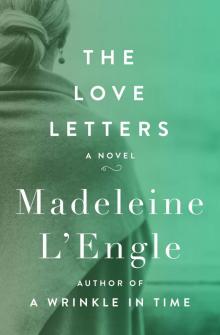 Love Letters
Love Letters The Summer of the Great-Grandmother
The Summer of the Great-Grandmother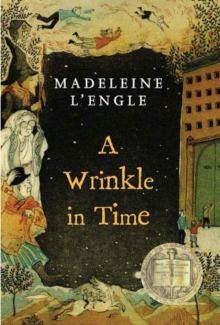 A Wrinkle in Time
A Wrinkle in Time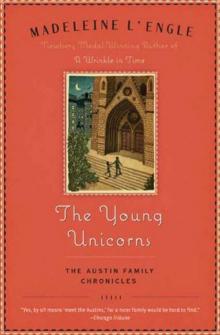 The Young Unicorns
The Young Unicorns Two-Part Invention: The Story of a Marriage
Two-Part Invention: The Story of a Marriage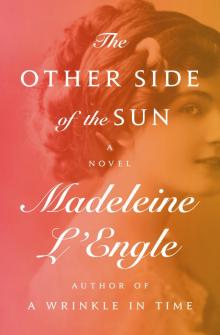 The Other Side of the Sun
The Other Side of the Sun A House Like a Lotus
A House Like a Lotus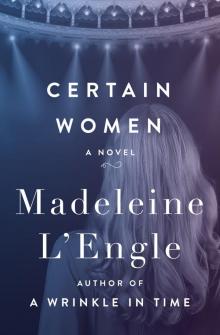 Certain Women
Certain Women Many Waters
Many Waters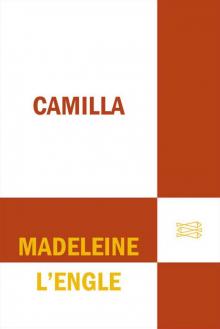 Camilla
Camilla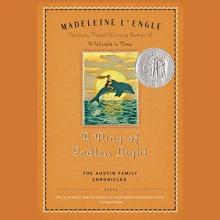 A Ring of Endless Light
A Ring of Endless Light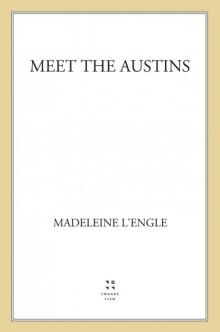 Meet the Austins
Meet the Austins Dragons in the Waters
Dragons in the Waters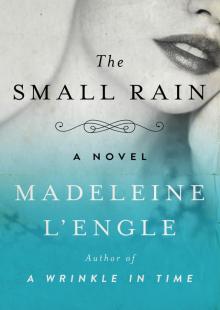 The Small Rain
The Small Rain The Moment of Tenderness
The Moment of Tenderness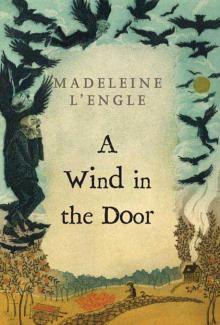 A Wind in the Door
A Wind in the Door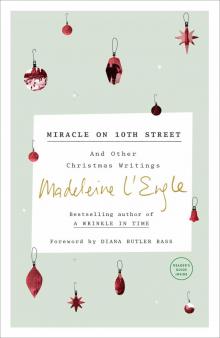 Miracle on 10th Street
Miracle on 10th Street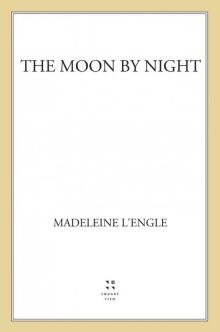 The Moon by Night
The Moon by Night A Swiftly Tilting Planet
A Swiftly Tilting Planet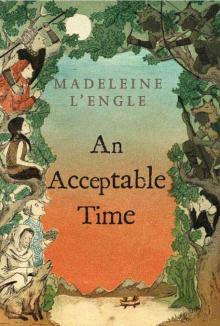 An Acceptable Time
An Acceptable Time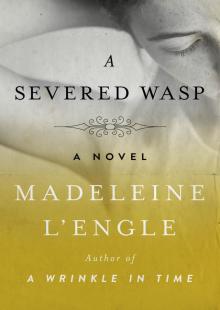 A Severed Wasp
A Severed Wasp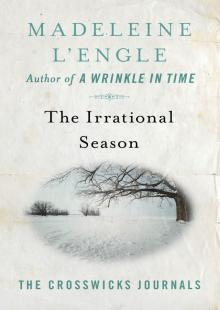 The Irrational Season
The Irrational Season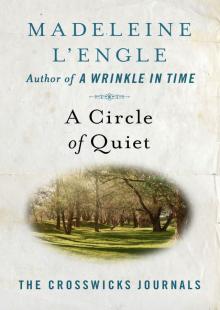 A Circle of Quiet
A Circle of Quiet A Live Coal in the Sea
A Live Coal in the Sea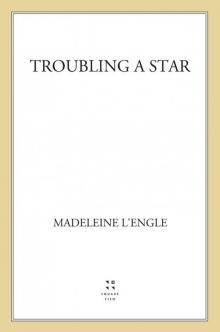 Troubling a Star
Troubling a Star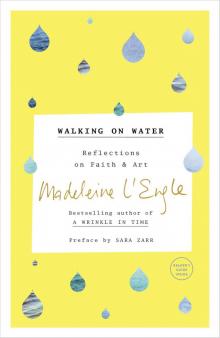 Walking on Water: Reflections on Faith and Art
Walking on Water: Reflections on Faith and Art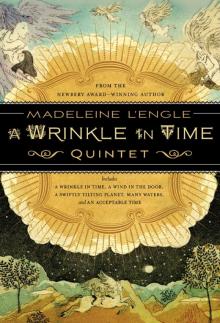 A Wrinkle in Time Quintet
A Wrinkle in Time Quintet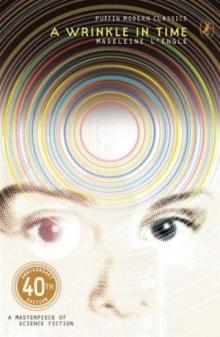 Wrinkle in Time
Wrinkle in Time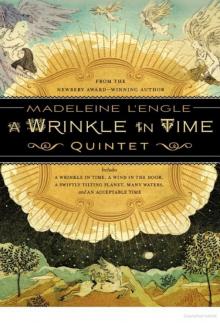 The Wrinkle in Time Quintet
The Wrinkle in Time Quintet Intergalactic P.S. 3
Intergalactic P.S. 3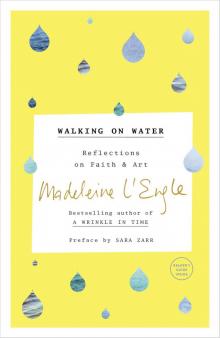 Walking on Water
Walking on Water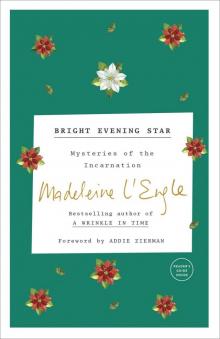 Bright Evening Star
Bright Evening Star The Rock That Is Higher
The Rock That Is Higher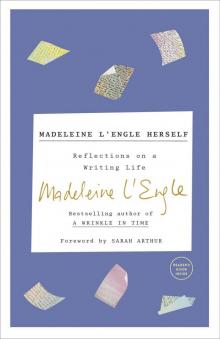 Madeleine L'Engle Herself
Madeleine L'Engle Herself The Arm of the Starfish
The Arm of the Starfish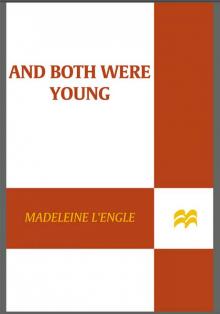 And Both Were Young
And Both Were Young The Twenty-four Days Before Christmas
The Twenty-four Days Before Christmas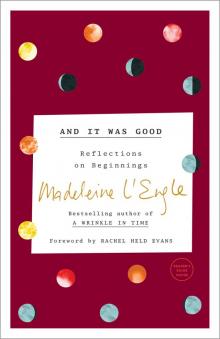 And It Was Good
And It Was Good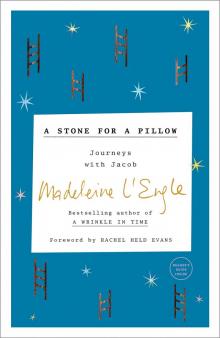 A Stone for a Pillow
A Stone for a Pillow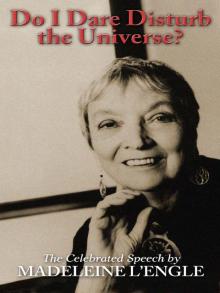 Do I Dare Disturb the Universe?
Do I Dare Disturb the Universe?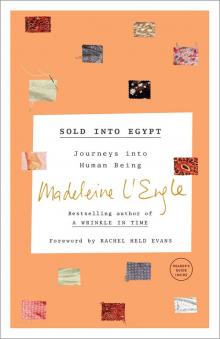 Sold into Egypt
Sold into Egypt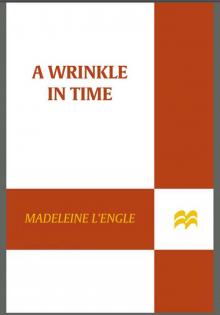 A Wrinkle in Time (Madeleine L'Engle's Time Quintet)
A Wrinkle in Time (Madeleine L'Engle's Time Quintet)